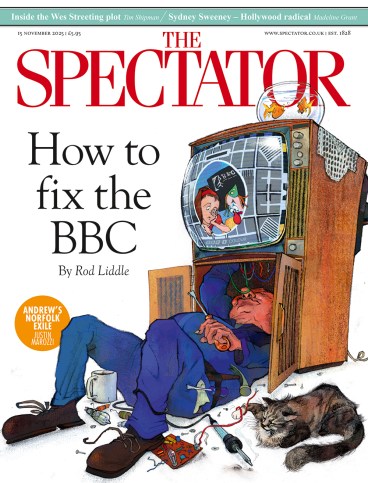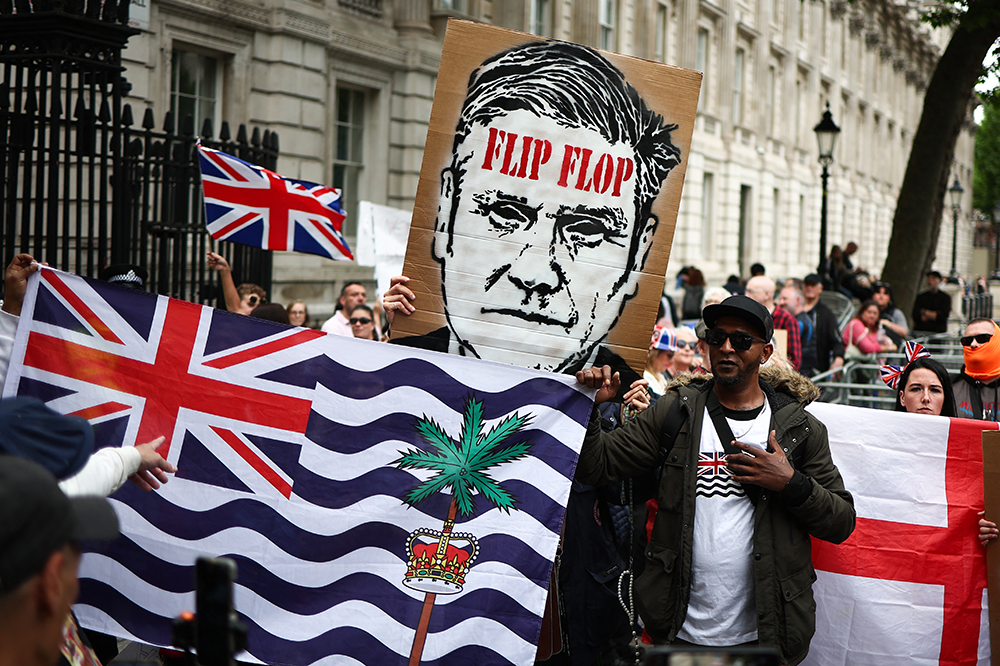
When the BBC denies ‘systemic bias’, it denies the main, the crucial thing exposed by Michael Prescott’s now-famous leaked internal memo. Prescott was not presenting a ragbag of mistakes, but examples from many different areas of subjects where an institutional view prevailed – against Donald Trump, pro-trans, pro-immigration etc, all of them defensible views but none of them following rules of impartiality or accuracy. For this reason, the Prescott material about Israel/Gaza coverage is the most important by a long way, though less expensive for the BBC than its doctoring of Trump’s words. It is about a systemic failure, which can only be accounted for by bias, failure to explain what Hamas is up to, to question its actions, its casualty statistics or the bona fides of the Hamas-supporting ‘journalists’ used by BBC Arabic to give mendacious accounts of the conflict. The opinions of Hamas about Jews are in essence Nazi views and repeat Nazi tropes, the only difference being that the Jew-haters and Jew-killers in this case are Arabs, not Aryans. It is intolerable yet it is tolerated, not by mistake, but on purpose.
One of the frequent defences of the BBC World Service is the wonderful ‘soft power’ it wields for Britain. In my experience, however, moderates in the Muslim world intensely dislike the way BBC Arabic stirs up Islamist discontents. They cannot understand why the British taxpayer and licence-fee payer is made, by successive British governments, to pay for it.
The BBC splicing trick was much more stylishly done in this paper in 1983, which was the year I joined as political columnist. A.N. Wilson, the literary editor, ran a review by Bel Mooney of a book about George Eliot’s lover, G.H. Lewes. As published, it read: ‘Pushy, conceited, vulgar, over-energetic, and with one eye for the main chance: Lewes seems like a Victorian Clive James.’ Mooney’s original had read: ‘All the jibes at Lewes – that he was pushy, conceited, vulgar, over-energetic, and with an eye for the main chance – make him a welcome and refreshing relief from such dour Victorian valetudinarians as Carlyle and Herbert Spencer. Lively, a polymath, Lewes reads like an early incarnation of Clive James.’ When Mooney wrote to complain about the edit, Andrew Wilson threw her letter away. After some thought, the then editor, Alexander Chancellor, sacked Andrew. Many of us were sad about that because we liked and admired Andrew, and his edit made us laugh; but we had to admit Alexander was within his rights. The differences between then and now are that the editor acted decisively and that Bel Mooney, unlike Trump, did not threaten a suit of $1 billion.
Sir Keir Starmer has been abroad on government business 40 times since he became Prime Minister 16 months ago. He is said to be planning four to six more trips before Christmas. In May 1979, Margaret Thatcher, like Sir Keir last year, took the reins in 10 Downing Street for the first time amid dismal economic news. By my count, Mrs Thatcher made only 18 such visits in her equivalent 17 months, of which six were extensions of one another (e.g. stopping off elsewhere on her way back from Japan). Her total time abroad in that period amounted to less than a month. Could there be an inverse relationship between prime-ministerial travel and prime-ministerial success? Certainly, while the cat’s away, the mice will play, as we see this week.
Edward Chancellor, the writer who best understands the workings of interest, has kindly offered me his calculations about the cost of the government’s Chagos deal with Mauritius. The Treasury says the real cost over 99 years is £3.4 billion. To make the right calculation, one must discount future nominal payments by the inflation rate. Assuming, as the Treasury does, an annual 2 per cent inflation, that would amount, says Chancellor, to £10.2 billion in terms of current sterling. But the Treasury reaches its £3.4 billion figure by using the ‘social time preference calculator’, an official measure of the price of time, averaging 3 per cent plus an inflation estimate of 2 per cent, so the average discount rate applied to future payments is 5 per cent. This social time preference sum assumes long-term growth of about 3 per cent. Yet in the past ten years, growth has averaged only 1.5 per cent. Chancellor argues that the social time preference calculator gives a misleadingly favourable impression of the cost. The clever bankers advising Mauritius have made sure that the deal exposes British taxpayers to open-ended liability for future inflation. The people advising HMG have obscured the true cost of the deal by applying a nefarious discount rate, making it three times higher than the stated one. This deal can still be stopped, and Chancellor – as opposed to the Chancellor – convinces me that it should be.
We still await Peter Mandelson’s replacement as British ambassador in Washington. Given what happened, the government may well want to give the post to Sir Muggins Buggins KCMG and avoid controversy. That would be a pity because, in the Trump era, Washington would welcome a strong character with a bit of stardust and good connections (which Lord Mandelson possesses, even though one of his connections was spectacularly ungood). A friend puts into my head the thought that it should be Rupert Soames. He is shrewd, noisy, rich, experienced in dealing with government as well as business, and is Winston Churchill’s grandson. He would, to use the cliché, punch above his weight, and his weight is considerable. His talents are being wasted on the dreary old CBI. No doubt Labour will disapprove of Soames as a Tory; but his and Milly’s salon in that great Lutyens house would excite establishment Washington and Trumpians alike.








Comments